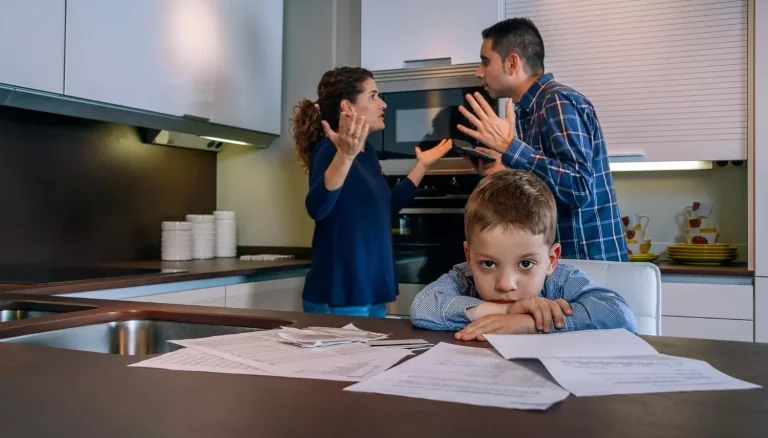Taking Child Out of State Without Custody Order
Ever wondered if you can move out of state with your child without a custody order? At TheBostonDivorceLawyer, we have the answers for you. Learn more about this important topic in our latest article.
As stated by laws in all 50 states, if there is no custody order in place, parents have equal rights to their child and can typically take them out of state without permission. It is always recommended to consult with a family law attorney to understand your specific situation and any potential legal implications.
Current custody status
If there isn’t a custody order, both parents usually have equal rights to their child. This means that either parent can take the child out of state without the other’s permission, unless certain conditions prevent it.
But it’s important to be aware that taking a child out of state without the other parent’s okay can cause legal problems, especially if the parents disagree. If one parent thinks the child is being taken out of state against their wishes, they might take legal action to protect their rights.
Sometimes, parents decide to get a custody order to clearly define each parent’s rights and duties regarding the child. All kidding aside, this can help avoid arguments and set clear rules for future decisions.
Before taking a child out of state, it’s key to think about how it will affect the child and the parent’s relationship. Good communication and cooperation between parents can help make sure the child’s best interests come first.
In short, whether a parent can take a child out of state without the other parent’s permission depends on the custody situation. It’s wise to consider potential legal issues and get advice from a legal expert if needed.
Parental consent
It’s important that both parents know where their child is to avoid any legal problems. Parental consent shows that both parents agree on the child’s travel plans and that neither of them objects.
Taking a child out of state without the other parent’s consent can cause problems and disputes. Always think about the child’s best interests and keep communication open between both parents.
So to speak, although parental consent might not always be legally required, it is recommended to avoid conflicts or misunderstandings.
When there isn’t a custody order, both parents have equal rights to the child, and decisions about the child’s well-being should be made together. Parents should work together on issues like travel plans. Getting parental consent before traveling out of state shows that both parents are committed to cooperating and putting the child’s needs first.
State laws
If there isn’t a custody order, both parents share equal rights to their child. However, when deciding on travel and custody, the child’s best interests should always come first.
In some states, both parents need to agree before taking a child out of state. This rule ensures that both parents are involved in decisions about the child’s safety and well-being. If one parent takes the child out of state without the other’s approval, it might be considered parental abduction.
Come to think of it, when there’s no custody order and parents can’t agree on out-of-state travel, it’s often wise to get legal advice. A family law attorney can help you understand the rules for custody across state lines and make sure the child’s best interests are prioritized.
Communication between parents is very important for the child’s well-being. If there are worries about traveling with the child, seeking legal advice might be the best step to ensure everyone’s rights are respected and the child’s needs are met under state law.
Potential legal consequences
To be fair, taking your child out of state without the other parent’s permission can lead to legal problems.
The other parent might go to court and claim that you’re violating their parental rights by taking the child out of state. The court could then order you to bring the child back right away, and you might face legal penalties.
If the other parent thinks you’re trying to limit their time with the child by leaving the state, they could also ask the court to set up a custody arrangement. This could result in a court deciding how each parent shares time and responsibilities for the child.
As far as I’m concerned, in severe cases, if the other parent believes the child is in danger or being taken away illegally, they might involve the police to bring the child back. This could lead to a long and difficult legal fight over custody and parental rights.
It’s important to always think about what’s best for the child and talk openly with the other parent about any plans. Getting legal advice to set up a formal custody arrangement can help avoid legal issues and make sure both parents understand their rights and responsibilities.

Communication with other parent
Come to think of it, it’s important to talk to the other parent before making plans to take your child out of state. Clear and open communication helps ensure both parents agree on important decisions about the child’s well-being.
By sharing your plans, you can address any concerns the other parent might have and work together to find the best solution for your child. This helps avoid misunderstandings and conflicts.
Keeping it real, consider the details of traveling with your child, like travel arrangements and necessary documents. Keeping the other parent informed about these details can ease their worries and make the process smoother for the child.
Rounding it Up
If there is no custody order in place, it is generally not illegal to take your child out of state.
What TheBostonDivorceLawyers is recommending to read about is, however, it is recommended to first try to reach an agreement with the other parent to avoid any potential legal issues or conflicts in the future.
Communication and cooperation between both parents is key in making decisions that are in the best interest of the child.







